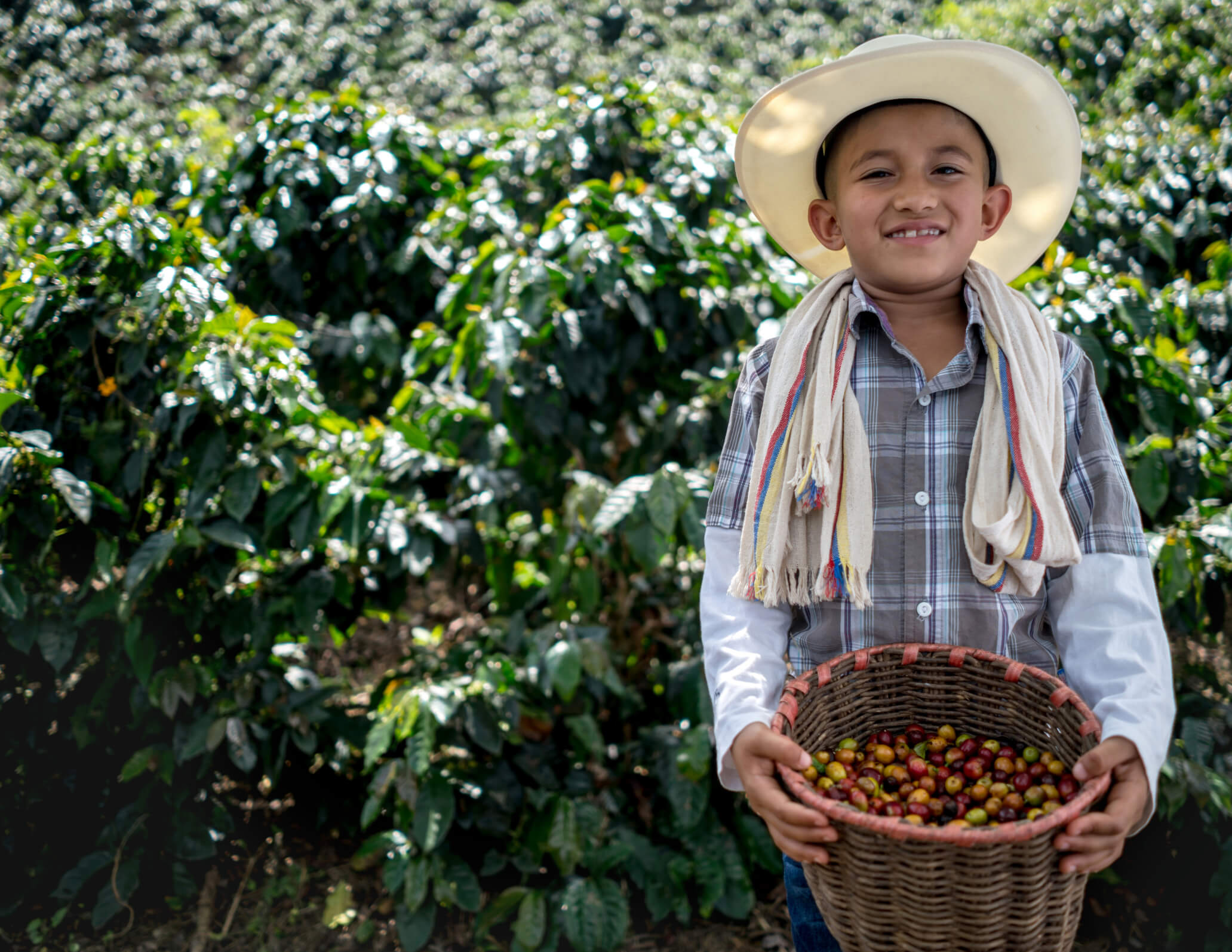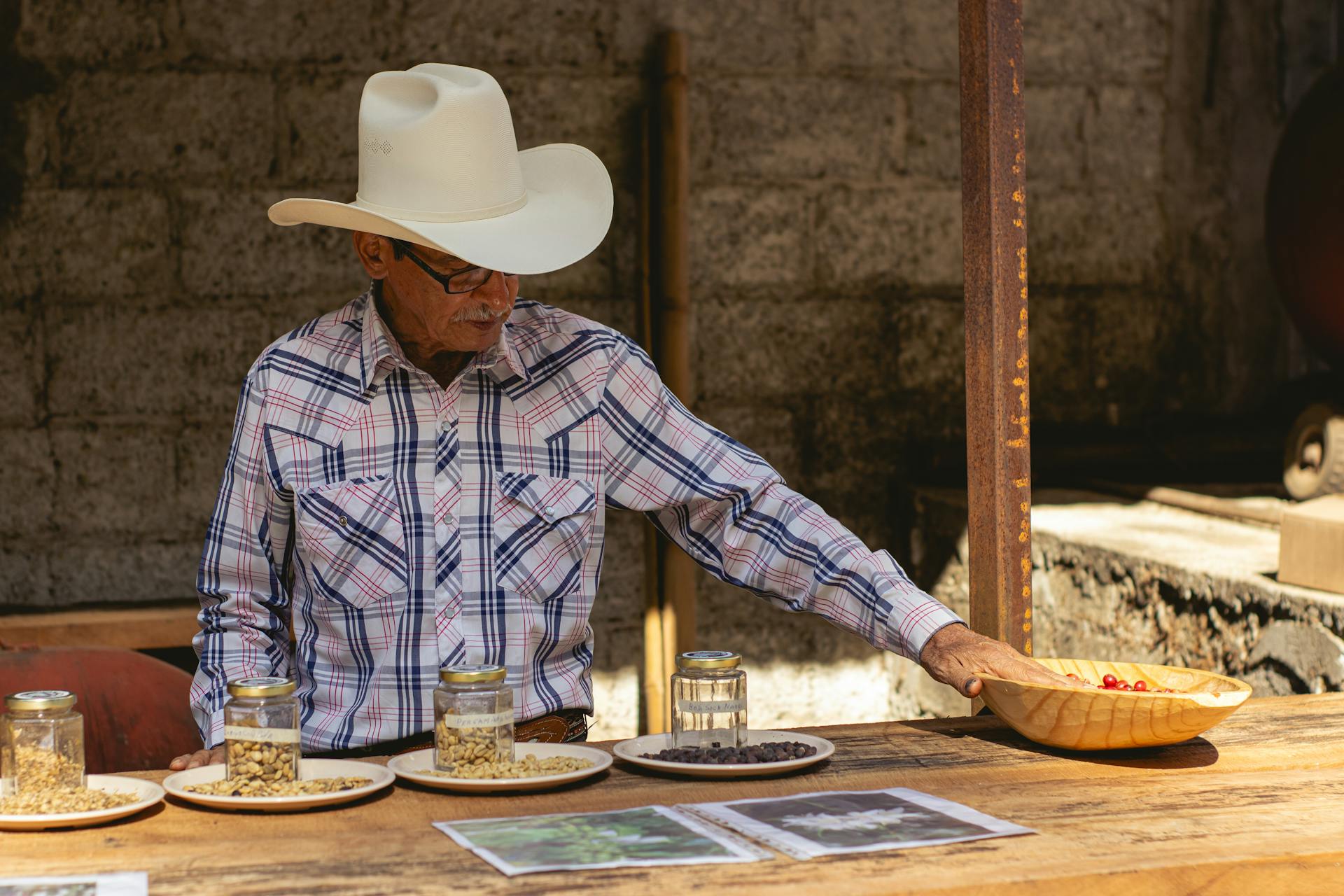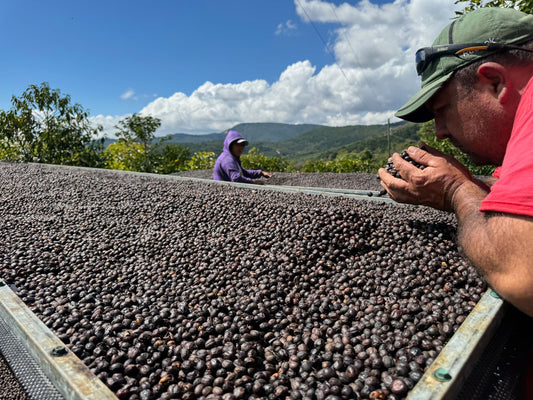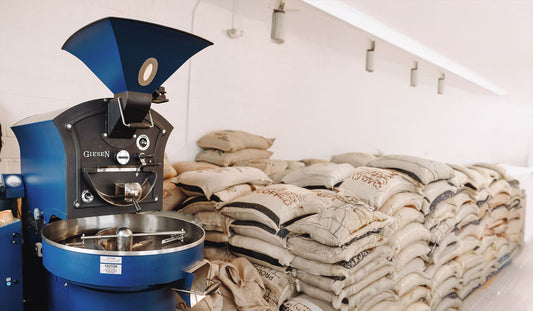In Mexico, coffee farms are typically small, independent operations, with roughly 95% of them occupying less than 3 hectares (7.41 acres) of land each. Although Mexico is home to over 500,000 coffee farmers, the vast majority of them are located in four states in the south-central to southern regions: Chiapas, Veracruz, Oaxaca, and Puebla.
Although Mexico’s coffee output isn’t as nearly as prominent as the major coffee-growing regions, like Brazil, Vietnam, Indonesia, and Columbia, the country ranked 10th in the 2023/2024 coffee production report.
Typical Tasting Notes
Approximately 96% of Mexican coffee beans are the Arabica bean variety, with Robusta accounting for the remaining 3-4%. Although the tasting nuances of Mexico’s coffee production vary at regional and local levels, Mexican coffee is typically well-balanced and light-bodied with a mild acidity, notes of nuts such as almonds and hazelnuts, chocolate undertones, and subtle hints of floral, fruit, and citrus.
Growing Conditions and Traditions

Mexican coffee is frequently grown in environments with high altitudes, ample shade, volcanic soil, abundant rainfall, and a relatively cool climate—all factors that contribute significantly to the overall quality of the country’s coffee crops.
Mexico’s coffee farms are often family-run operations, so it’s quite common for whole families (including children) to help out with cultivating, harvesting, and processing, and the labor is typically done by hand. Selective picking and wet processing are common practices that improve the quality of their coffee production. Some farms in Mexico also use traditional methods, such as sun-drying and mill-grinding.
Naturally Organic Coffee
Notably, Mexico is one of the world’s largest producers of organic coffee. This is mainly due to the prevalence of inherently organic farming practices that are so prevalent among indigenous coffee-growing communities, especially the Mayans.
The coffee is often grown in terroirs that support biodiversity, so natural predators are used for pest control, rather than chemical pesticides. Furthermore, the nutrient-rich volcanic soil often eliminates the need for chemical fertilizers.
Although many Mexican farms are organic by default, many of the farmers focus heavily on sustainability and eco-friendly practices, not only to preserve the land’s integrity so Mexico’s coffee production can continue long-term in spite of challenges presented by climate change, but also to meet the rising demand of mindful coffee enthusiasts around the world.
The Big Four: Mexico’s Main Coffee-Producing States

Now that you have a basic understanding of Mexico’s coffee farms and crops, let’s explore the differences among the major four coffee-producing states.
Chiapas: The Connoisseur's Pick
With over 40% of Mexican coffee coming from Chiapas, Mexico’s southernmost state near the Guatemalan border is the country’s largest producer. Many coffee enthusiasts consider coffee grown in Chiapas to be the country’s best, which is due largely to the significant amount of rainfall the region receives, which keeps the area’s rich volcanic soil adequately hydrated.
Coffees from Chiapas embody the quintessential tasting notes of Mexico’s coffee production. They tend to be very smooth, creamy, and medium-bodied with a bright yet balanced acidity. There are often notes of cacao, dark chocolate, tropical fruits, nuts, cinnamon, brown sugar, and caramel, as well as floral and fruity undertones.
Veracruz: Sweet and Buttery
Located on Mexico’s east coast, Veracruz produces roughly 25% of Mexico’s coffee. Its mountainous terrain, tropical climate, consistent rainfall, volcanic soil, and abundance of vegetation make it an ideal region for growing top-quality coffee.
Coffee from Veracruz is famous for its buttery mouthfeel, smooth finish, medium body, and moderate acidity. Compared to other varieties from Mexico’s coffee production output, the coffee tends to be sweeter, yet still balanced. Common tasting notes include juicy peaches, milk chocolate, brown sugar, roasted nuts, and floral, fruity, and citrus undertones.
Oaxaca: Mild Yet Distinct
Bordering Chiapas to the north, Oaxaca produces approximately 11% of Mexico’s coffee. Compared to most of Mexico’s coffee farms, Oaxaca’s crops are typically grown at lower elevations (especially in the Pluma region), which gives the area’s coffee unique flavors that tend to be more subtle than other Mexican coffees, yet also complex.
Oaxacan coffees often have a light acidity and citrus notes that give them a distinct refreshingness that contrasts nicely with the creamy body. The common tasting notes include cacao, caramel, fruit, and nuts, as well as a vast variety of region- and farm-specific undertones, such as lime, melon, and berries.
Puebla: Balanced Yet Complex
Often overlooked as one of Mexico’s primary coffee-growing states, Puebla produces roughly 15% of the country’s coffee. Puebla is a highland region that’s home to an active volcano, Popocatépetl, which provides exceptionally nutrient-rich soil. The state’s high altitude, warm temperatures, and humidity from the Gulf of Mexico also contribute to the quality of its crops.
Pueblan coffee tends to have especially complex flavors compared to other varieties from Mexico’s coffee production, due to the state’s elevation and close proximity to an active volcano. The flavor is typically balanced with a medium body and moderate acidity. Common tasting notes include caramel, cacao, vanilla, and nutmeg with citrus and nutty undertones.
Explore Single-Origin Coffees From Mexico & Beyond

We hope you’ve learned a lot about Mexico’s coffee farms and beans. Of course, the best way to truly understand Mexican coffee is to try it for yourself! Here at Ebru Coffee, we proudly offer specialty coffee beans that are ethically sourced from all around the world, including Mexico.
Whether you’re seeking a better version of your favorite coffee bean variety or looking to experiment with new flavors and aromas, our sustainable, single-origin coffees are sure to please.
Mexico’s coffee production is just one chapter of a rich story that has spanned countless centuries and continues today. Keep reading our coffee culture blog for more fascinating insights into coffee regions and their flavor profiles, growing traditions, coffee-infused recipes, and so much more. Make Ebru Coffee your go-to resource for all things coffee, and shop our selection today!





